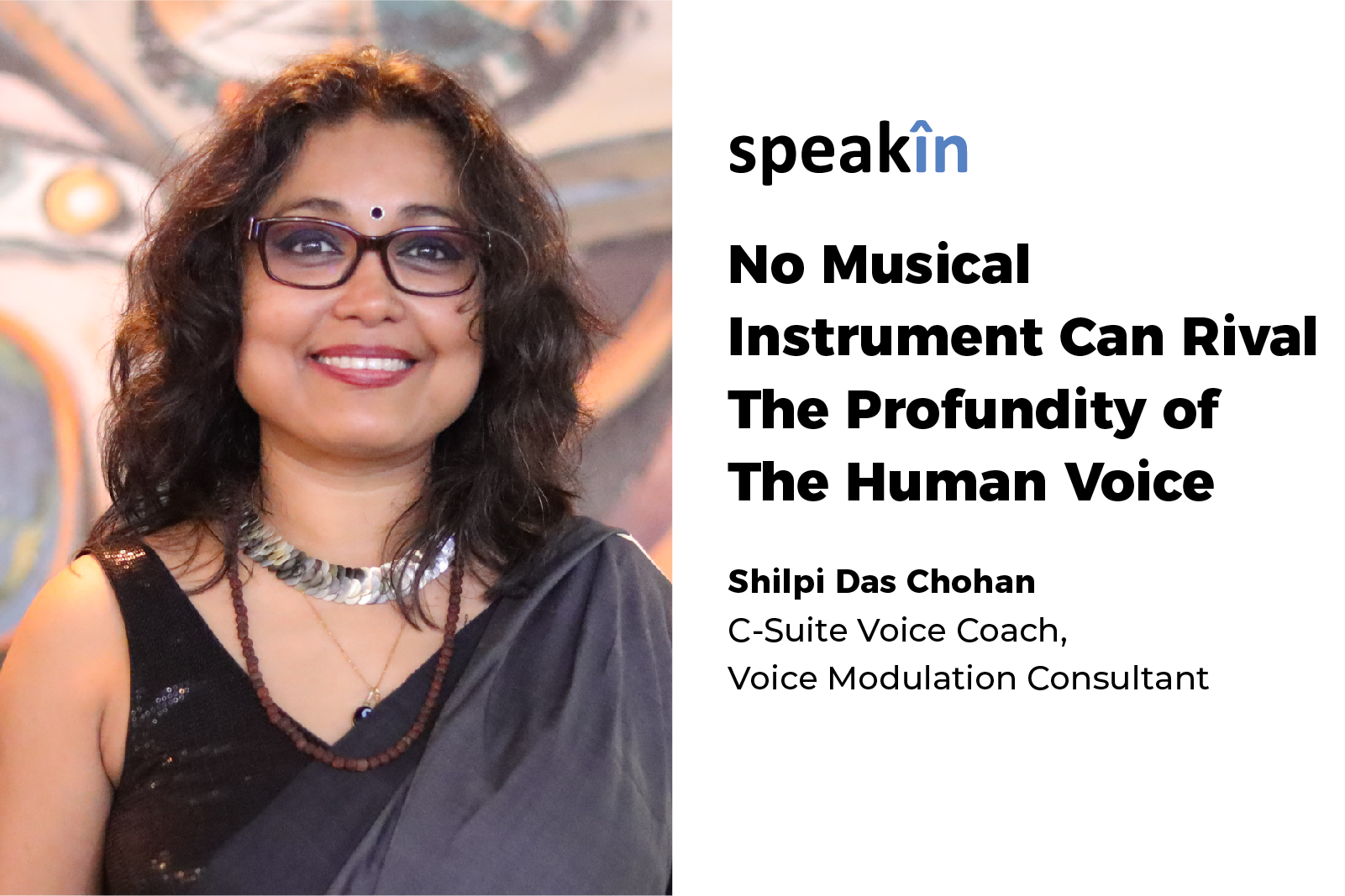We are all born with the most amazing musical instrument inside us—our voice. It is the ultimate melodic instrument, capable of instant expression and a range of moods, feelings and depth of expression which no musical instrument can rival.
Richard Strauss, the 19th century German Romantic composer, called the human voice the most beautiful instrument of all but said it was the most difficult to play. It’s when we explore the full range of the human voice that it becomes an instrument of eloquent expression.
My son came home from school one day and told me he nodded off to sleep in one of the periods that day. I was surprised. It had never happened before. No matter how disinterested in the subject he might, he never slept in the class. I asked him why that happened and he said the voice of the teacher—who spoke slowly and monotonously—made him sleepy.
The way we speak has a profound impact on our listeners. How we say something is as important, or even more important, than what we say.
You may be aware of the Albert Mehrabian communication model. The Iran-born professor believes that there are three core elements in the effective face-to-face communication of emotions or attitudes: nonverbal behaviour (facial expressions, for example), tone of voice, and the literal meaning of the spoken word. He formulated the 7-38-55% communication rule, where he gave 55 per cent weightage to body language, 38% to the tone of voice, and only 7% per cent to the actual words used.
So, the words are just empty if they are not infused with voice, tonality and emotions. Even Maya Angelou, the American poet, talked about this, saying: “Words mean more than what is set down on paper. It takes the human voice to infuse them with deeper meaning.”
It’s time we understand that how people respond to us largely depends upon how we sound. And this missing link—the voice—which has an unfathomable potential to connect with people is never ever taught to us in the space of oral communication.
Let me give you an example. Close your eyes and imagine the rustling of dry leaves, or the sound of a waterfall, heavy rain fall, or the sound of crickets at night. Now open your eyes. And think about what you felt. Did you imagine each of these sounds? Did visuals accompany your imagination? In retrospect, you might have noticed how emotionally you were responding to each sound. Sounds trigger a visual memory in your brain.
Here’s another example: a utensil falls in the kitchen, chalk screeches on the blackboard, your partner calls out your name lovingly, your child comes to you and says ‘I love you’… So, what’s the difference between these two sets of examples?
The first set were natural sounds and the second set were sounds produced by humans. Our emotions are much stronger when there is a human sound. Everything is conveyed just by the way your voice sounds. So, in how we present ourselves and project our personality, our voice is a crucial, pivotal, tool. The moment you open your mouth to say something, a certain perception will be formed about you, whether you like it or not. It’s a psychological process.
Consider any business presentation. You could have all the facts and figures impressively mounted on your slides but if you fail to emotionally stir your audience, you would have failed.
I left a corporate career to become a trainer in soft skills. I realised as I went along that using the power of the voice was an area that was neglected. That’s when I started this journey of coaching people to help them discover their authentic voice and become better communicators.
I realised that every element of vocal communication matters.
As speakers, and as leaders, we need to understand that it is just not the domain of a professional storyteller or an emcee or a voiceover artist, anybody who is using voice is doing it for a particular purpose and is seeking a desired outcome.
There are trillions of cells in the human body and the magnitude of the sound they produce is extraordinary. We are not able to hear the sound produced by the body because human ears can only hear in the range about 20Hz to 20kHz. We have to understand that we actually respond to frequencies and the response is emotional. Your vocal energy is important in attracting people towards you. People move away from you because of the way you sound, or draw closer to you for exactly the same reason.
So, here it is: if content is the king in the art of communication, then how you keep your audience glued is the queen of the communication. It has to be backed by the right emotions. If you have your vocal instrument intact and you are using it, then play it well, know the entire range—your high pitch, your mid pitch, your deep voice. Play all the pitches, it requires a lot of practice. Start practicing. Project your voice.
About Shilpi Das Chohan
Shilpi Das Chohan is a C-Suite Voice Coach, Voice Artist, Sound Healing Practitioner and a Philanthropist. A qualified LP Master Practitioner, Shilpi perpetuates the pivotal role ‘voice' plays in oral communication through unique methods and her concept of 12 Cs of Leadership Voice. She also provides personalised coaching to leaders helping them transform into impactful leaders owing to a strong vocal presence. She firmly believes that a powerful voice is a critical asset to lead and motivate.

